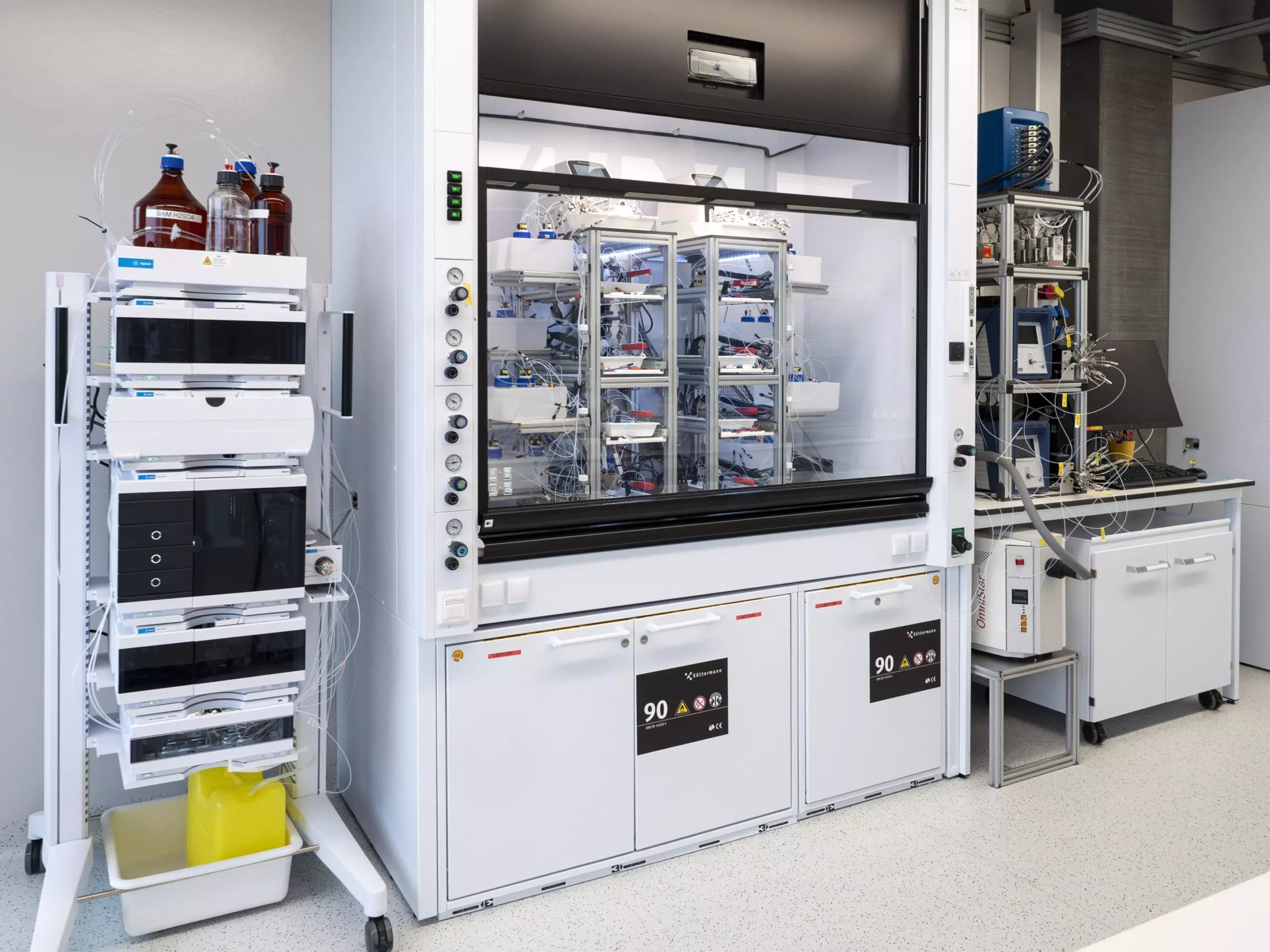When it comes to producing synthetic fuels from CO2, researchers face several challenges. One of the main challenges is the complexity of the chemical reaction involved in CO2 electrolysis. Unlike the simple combustion process that produces CO2, water, and energy, CO2 electrolysis can result in more than 20 different products that are difficult to separate from each other. This complexity makes it challenging to find the optimal conditions for producing synthetic fuels efficiently and economically.
Researchers at Empa and the Paul Scherrer Institute (PSI) have developed a groundbreaking system that addresses this challenge. This system, part of the Joint Initiative SynFuels, allows researchers to investigate up to 10 different reaction conditions, catalysts, and electrode materials simultaneously. By accelerating the experimentation process, researchers can generate a large amount of high-quality data that will help them make significant discoveries in the field of synthetic fuel production.
During the development of the system, researchers faced another challenge: the lack of necessary instruments on the market. To overcome this, they collaborated with Agilent Technologies to develop the world’s first online liquid chromatography device that can identify and quantify liquid reaction products in real time during CO2 electrolysis. Additionally, researchers have also developed a software solution to analyze the vast amount of data generated by the accelerated experimentation process. This software will be made available to scientists at other institutions on an open-source basis, promoting collaboration and knowledge-sharing in the scientific community.
The researchers at Empa are committed to ensuring that their data is accessible to other researchers. Through the PREMISE research project, they aim to create standardized methods for storing and sharing data, preventing valuable research data from being lost after publication. By sharing their data and know-how with other Swiss research institutions, the researchers hope to foster new insights and advancements in the field of synthetic fuel production.
The parallel CO2 electrolysis system developed by Empa researchers is set to play a crucial role in the second phase of the National Center of Competence in Research NCCR Catalysis, which focuses on sustainable chemistry. The data generated by the system, as well as the expertise developed through the research, will be shared with other Swiss research institutions to further advance the field of sustainable chemistry and synthetic fuel production.
The development of advanced technology in the field of synthetic fuel production has the potential to accelerate discoveries and overcome the challenges associated with CO2 electrolysis. By leveraging innovative instrumentation, software solutions, and open-access data sharing, researchers can work collaboratively to drive progress in the development of sustainable synthetic fuels.


Leave a Reply